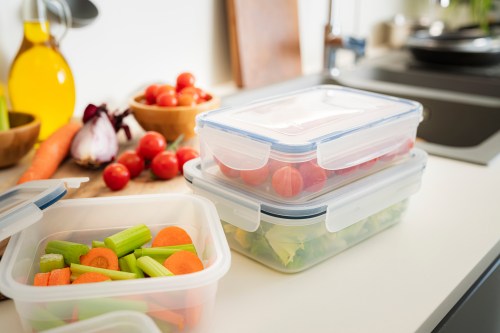You’ve had a week: a major fight with your S.O., a less-than-stellar review from your boss, and your BFF just canceled on your much-needed SoulCycle date. Stress levels are high and endorphins are low: Sounds like it’s time to head to Bandier for a little retail therapy.
Not so fast! A recent study published in the Journal of Consumer Research suggests that it’s not new clothes or fancy gadgets shoppers buy when they need a pick-me-up; it’s utilitarian items, like cleaning supplies. Because nothing soothes a broken heart like a new scrub brush, am I right?
The researchers hypothesize that shoppers are more likely to buy practical items when they spend impulsively and emotionally because it helps them feel more in control of their lives. “Utilitarian or functional products are generally perceived as tools that people use to solve problems in their everyday lives,” says Leonard Lee, one of the study’s co-authors and an associate professor of business at the National University of Singapore. “And problem solving is a quality that promotes a sense of control. Therefore, when consumers experience a loss of control, buying such products can help them feel better.”
“Problem solving is a quality that promotes a sense of control. Therefore, when consumers experience a loss of control, buying utilitarian products can help them feel better.”
The study found that stressed-out shoppers were also more drawn to items when they were advertised as useful rather than enjoyable, such as a juice that will help you “beat heatstroke and dehydration” rather than one that is “tasty and delicious.” (To be clear: This was the same juice, just marketed two different ways.)
The practical products make us feel more productive, posits Justin Chidester, Accredited Financial Counselor (AFC) and owner of Wealth Mode Financial Planning in Logan, Utah. “This is why you see people impulse spend after a breakup, getting laid off, or if they are emotionally spent after every day on a job they don’t like,” he says. “They lost their sense of being in control, and need to accomplish little actions that give them a feeling of being in power and being able to control their destiny.”
Stocking up on tool kits and toilet paper might sound like an easy way to curtail bad feelings (you need these things, after all)—until your wallet starts to feel the strain. All of those “convenient and important” Amazon purchases add up until you blow your budget and feel out of control once again. Hey, you know what could make you feel better? New shelves…Welcome to the nasty cycle of stress spending.
Keep reading for 3 easy tips for curbing your emotional spending.

1. Match splurges with savings
Make a deal with yourself: You can buy the things you want, on the condition that you also save the purchase’s equivalent value. Just spent $20 on cleaning products that you didn’t really need (and didn’t budget for)? Put $20 in your savings account, too. This encourages you to think twice about your impulse buys because they’re twice as expensive. And since you’re saving, it turns a bad habit into a better one.
2. Take the convenience out of online shopping
If Amazon enables your splurging, consider unlinking your credit card info from the site. Force yourself to enter the long string of numbers and dates, making it just a little bit more difficult to check out. Similarly, there are apps and tools like Amazon Contemplate that can help get your spending in check. When you install the browser extension, it forces you to wait 30 seconds before purchasing any time you add something to your cart.
3. Find an accountability partner
You know how it’s easier to make it through your workout when a friend is there to keep you honest? Same goes with your finances. “So much research shows that, all else equal, people who have accountability do better than people who don’t, even if they’re both following the exact same plan,” Chidester says. “People who have a personal trainer go to the gym more often, more consistently, and have higher quality workouts then people who don’t. People who join a Weight Watchers group do better than people who go it alone. People who work with a financial planner or coach stay on track better than people who don’t.”
But you don’t have to enlist the help of a professional. “You can tell your spouse or partner about how you want them to help you stay on track. You can ask a friend to go with you to the store,” Chidester says. Even small engagement with accountability goes a long way.
This goes for personal accountability, too: Keeping an eye on your purchases when you’re feeling stressed or emotional is an important step in becoming more mindful with your money. In the long run, being aware of how and why you spend will give you a much greater sense of control than a bulk pack of paper towels ever could.
You’re just 5 steps away from getting better control of your finances (and a jump start on your savings)—and here’s Drew Barrymore’s advice for becoming a “financial grownup.”
Sign Up for Our Daily Newsletter
Get all the latest in wellness, trends, food, fitness, beauty, and more delivered right to your inbox.
Got it, you've been added to our email list.











